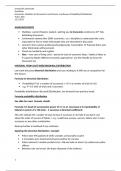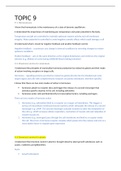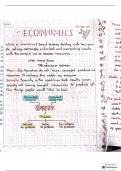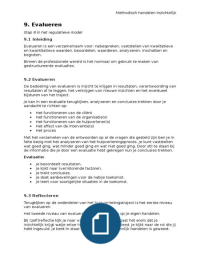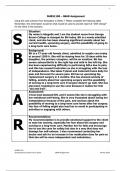Lecture notes
Satistics
- Institution
- University Of Greenwich
The statistics document is to further your understanding, as this is a very difficult module to understand, let alone achieve a pass. Everyone I know, including me, failed the first time around, so it's very important to get a grip on this module.
[Show more]
